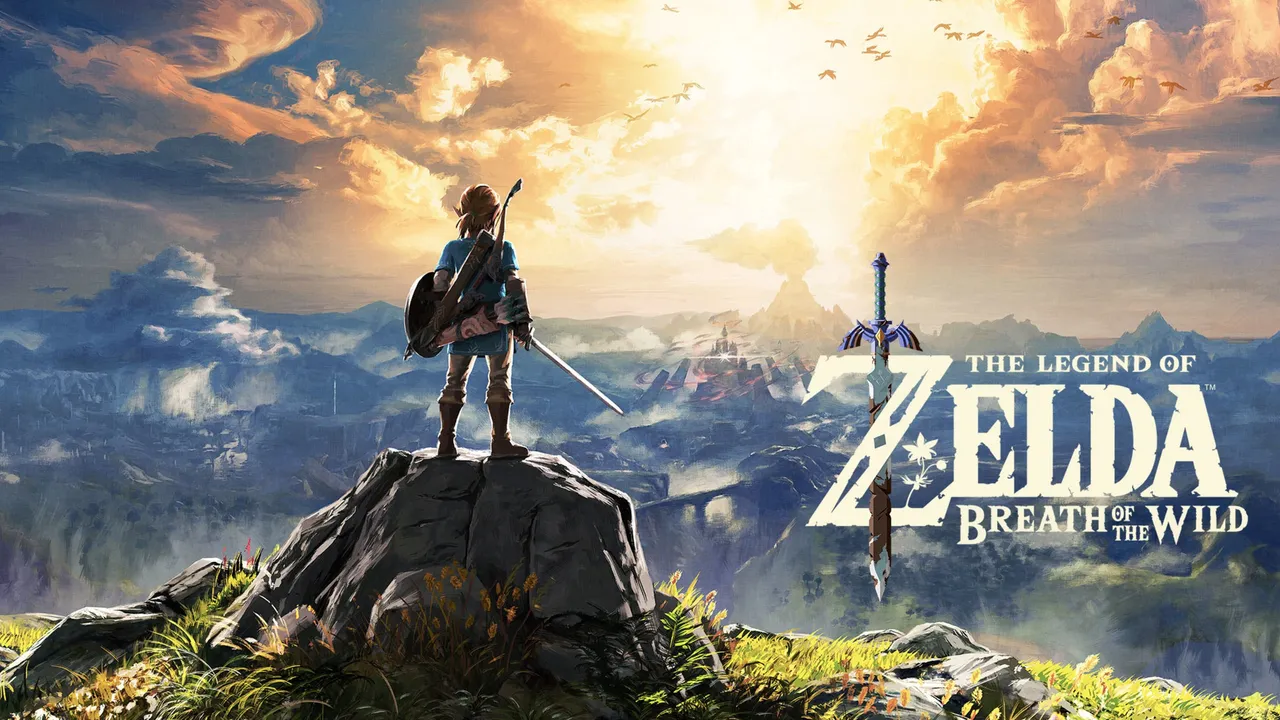A Love-Hate Relationship with The Legend of Zelda: Breath of the Wild

Let me start by saying that The Legend of Zelda: Breath of the Wild (BotW) is one of the most beautifully crafted games I've ever played. But the more time I spent with it, the more I found myself in a conflicted relationship with this open-world marvel. And no, this isn't your typical gushing review.
I remember the first time I woke up in the Shrine of Resurrection, the light filtering in as Link rose from his slumber. That initial sense of wonder, stepping into the vast, sprawling world of Hyrule, was unmatched. It felt like a return to a childhood dream, only this time with more depth, complexity, and the kind of freedom that made earlier Zelda games feel linear by comparison.
The Magic of Discovery... and its Downside
BotW’s open world is its greatest strength. The sheer sense of discovery, the thrill of climbing a mountain just to see what lies on the other side, is invigorating. Every hill, every forest, every ruined structure holds the promise of something new. But—and here's where my critical lens comes into play—this freedom can also be its undoing.
The lack of direction, while liberating, often left me feeling adrift. Sure, it's great that the game doesn't hold your hand, but after hours of aimless wandering, the thrill of discovery started to wane. There’s a fine line between freedom and aimlessness, and BotW occasionally crosses it. There were times when I wished the game had just a little more structure to guide me, not to the point of restricting exploration, but enough to make the experience feel more cohesive.
Shrines: Delightful Yet Repetitive
The shrines in BotW are a mixed bag for me. On one hand, they offer clever puzzles that often require a blend of creative thinking and the game’s physics engine. On the other, their uniformity and sheer number started to feel like a grind. Each shrine is a small slice of genius, but after the first dozen or so, the excitement of finding a new one started to dull. The sense of accomplishment after completing a particularly tricky shrine was often overshadowed by the realization that there were dozens more to go.
Moreover, the aesthetic of the shrines—blue and ancient, with the same visual theme—became tiresome. It’s a minor gripe, but I found myself longing for more visual variety. Even a slight change in atmosphere or design would have helped break the monotony.
Weapon Durability: Innovation or Frustration?
Ah, the weapon durability system. This is perhaps the most polarizing aspect of BotW, and my feelings about it are equally conflicted. On one hand, it forces you to constantly adapt, to think on your feet and make do with what you have. It’s a system that encourages experimentation, and I respect that. But the frustration of having a beloved weapon shatter mid-battle, especially when there’s no viable replacement in sight, was sometimes more aggravating than challenging.
There’s a fine balance between realism and enjoyment, and while I appreciate what the developers were trying to achieve, the constant need to scavenge for new weapons became a chore. It felt less like a strategic choice and more like an annoyance, interrupting the flow of combat just when it was getting good.
A World Too Quiet?
One of the most unique aspects of BotW is its subdued soundtrack. The minimalist piano notes, the ambient sounds of nature—they all contribute to an atmosphere that’s both serene and haunting. But, after spending countless hours in this world, I found myself missing the iconic, sweeping music that characterized previous Zelda games.
The quiet moments are beautiful, but they also make the world feel eerily empty at times. There’s a loneliness in Hyrule that, while thematically fitting, can sometimes make the experience feel a little too solitary. I missed the emotional highs that a more dynamic soundtrack could have provided, those moments where the music swells to match the grandeur of the world.
Conclusion: A Masterpiece with Flaws
The Legend of Zelda: Breath of the Wild is undoubtedly a masterpiece. It redefines what an open-world game can be, offering a level of freedom and discovery that few games can match. But it's not without its flaws. The very things that make it great—its open-ended nature, its emphasis on exploration, its innovative mechanics—can also detract from the experience.
BotW is a game that encourages you to lose yourself in its world, but that freedom can sometimes feel overwhelming. It’s a game that offers countless hours of exploration, but not all of those hours are equally rewarding. It’s a game that dares to innovate, but sometimes at the cost of player comfort.
In the end, my love-hate relationship with BotW is a testament to its complexity. It’s a game that pushes boundaries, and with that comes both brilliance and frustration. Whether you view it as a triumph or a flawed gem, one thing is certain: it’s a game that will be remembered for years to come.